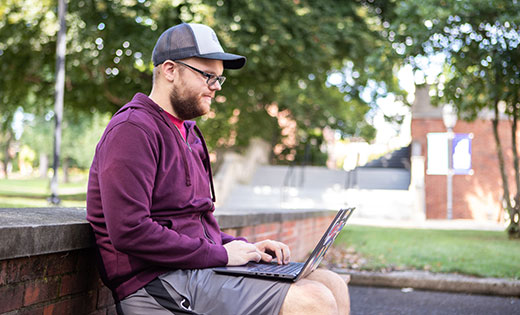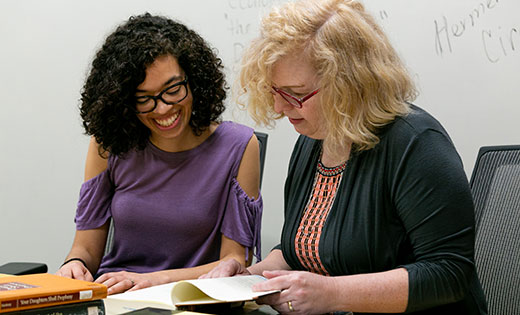Pittsburgh Theological Seminary Offers Hybrid Programs in Your Neighborhood
 Beginning in fall 2023, Pittsburgh Theological Seminary will offer all its master’s and certificate programs in a hybrid format—allowing PTS to be your neighborhood seminary regardless of your neighborhood location.
Beginning in fall 2023, Pittsburgh Theological Seminary will offer all its master’s and certificate programs in a hybrid format—allowing PTS to be your neighborhood seminary regardless of your neighborhood location.
“Theological education has been shifting for decades and the pandemic allowed many schools, including ours, to envision a new way of preparing ministry leaders,” said the Rev. Dr. Asa J. Lee, president and professor for theological formation for ministry. “This hybrid model allows us to increase access for our students while remaining rooted in our pedagogical commitments to student formation.”
The Seminary’s hybrid model allows students living on campus and students living at a distance to be part of one community of learning and formation. Distance students will engage directly with faculty in weekly synchronous online course sessions, and a selection of in-person options will continue to be available each semester for those who prefer that format. All students taking a hybrid course will attend two 2.5 day in-person gatherings per semester, joining residential students for worship, discernment, study, and contextual adventures in Pittsburgh. All students will participate in the gatherings and benefit from additional programming related to formation—community, personal, spiritual, professional, and ecclesial. Students enrolled full-time can continue to complete the master of divinity program in three years and the master of arts programs in two years; in the hybrid format part-time students can complete the master of divinity in five years and the master of arts programs in four years. Unlike some other seminaries, the PTS master’s hybrid program is subject to the standard credit rate and subsidized to remove economic barriers to enrollment. Merit, need-based, and other forms of aid are available to qualified candidates.
 “Quality theological education requires a learning community—one in which faculty and students have significant opportunities for interaction, diverse students can learn from each other, intellectual and pastoral skills are honed, and spiritual growth is supported through a variety of shared practices,” said the Rev. Dr. Angela Dienhart Hancock, Howard C. Scharfe Associate Professor of Homiletics, vice president for academic affairs, and dean of faculty. “While students enrolled in hybrid programs will enjoy the formative experiences of the campus gatherings each semester, we view their home context as a primary site of formation. Hybrid students will be guided in making the most of the resources of their own neighborhoods, even as they connect to the neighborhood of Pittsburgh.”
“Quality theological education requires a learning community—one in which faculty and students have significant opportunities for interaction, diverse students can learn from each other, intellectual and pastoral skills are honed, and spiritual growth is supported through a variety of shared practices,” said the Rev. Dr. Angela Dienhart Hancock, Howard C. Scharfe Associate Professor of Homiletics, vice president for academic affairs, and dean of faculty. “While students enrolled in hybrid programs will enjoy the formative experiences of the campus gatherings each semester, we view their home context as a primary site of formation. Hybrid students will be guided in making the most of the resources of their own neighborhoods, even as they connect to the neighborhood of Pittsburgh.”
The PTS faculty is committed to maintaining a standard of excellence in the hybrid format. This learning modality enables students from any neighborhood in the world to study with accomplished faculty and a diverse student body, while having the freedom to learn primarily in the location and format that work best for them. Whether students desire to join us as a residential student, a mostly-remote learner, or a combination of the two, PTS is your neighborhood seminary, meaning you can immediately apply what you learn in your particular context instead of waiting until after graduation.
The hybrid format is the latest example of Pittsburgh Theological Seminary reimagining the method of course delivery to reduce barriers to educational access. Since the days of Fred Rogers ’62 taking classes on lunch breaks from his job in television, PTS has sought to meet students’ needs with evening classes, changes in term schedules, and technology upgrades to facilitate online learning during the pandemic. In this new learning model, there are many neighborhoods and one seminary.
